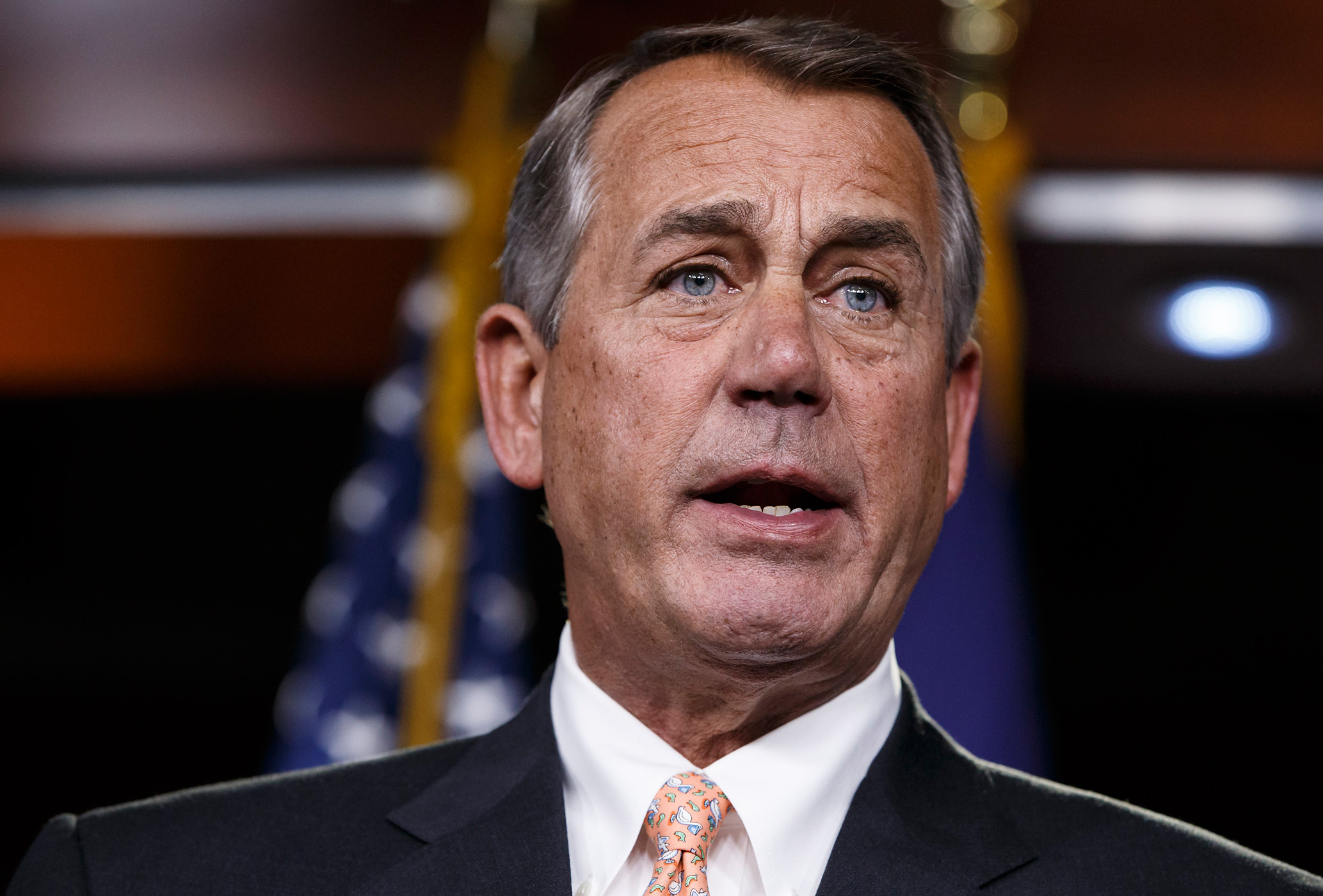
House leaders introduced a budget Tuesday that could spark a fight between the pro-military and anti-deficit wings of the Republican Party.
The proposed House Republican budget largely keeps across-the-board spending caps known as sequestration in place while setting aside an additional $94 billion to fight terrorism overseas over the next fiscal year.
That amount is $36 billion more than President Obama’s request for emergency funds to fight terrorism, which could help bring on board the 70 or so defense hawks in the House who have said they’ll only support a budget that has at least as much spending as the president’s budget.
But the proposal also risks losing support in the Senate, where Republican Sens. John McCain, Lindsey Graham and Tom Cotton have said they will not support a budget that leaves in place the sequestration cuts. Spending increases in future years could also cause concern among fiscal conservatives in both chambers.
The proposal would balance the federal budget in 10 years by cutting $5.5 trillion, mostly from domestic programs, particularly in health care. As in past budgets, Republicans propose repealing the Affordable Care Act and creating a Medicare premium support model for seniors beginning in 2024. It would also give states more flexibility to adapt their Medicaid programs.
“It is a plan that balances the budget in less than ten years, secures and strengthens vital programs – like Medicare – provides our military men and women with the resources they need to protect American families, and would make Washington more efficient, effective and accountable to hard-working taxpayers,” said House Budget Chairman Tom Price in a statement.
To be sure, the House proposal is more of a political chit than an actual working budget. But many Republicans in Congress hope to pass the first regular budget since 2006 as a sign of party unity and a show of legislative progress. In addition, since a budget needs only a simple majority, it would be a good way to get around opposition from the Democratic minority in both chambers.
There is one other incentive for the Republican-led Congress to pass a budget. A spending blueprint would allow Republicans to make use of a maneuver, known as reconciliation, to clear certain bills through the Senate with a simple majority, instead of needing to overcome the 60-vote hurdle posed by a filibuster.
GOP leaders haven’t specified what they might like to use the procedural end-run to accomplish — and Senate Finance Chairman Orrin Hatch already said one big priority, tax reform, will not be subject to the move this year. But it remains a powerful tool. Democrats used it in 2010 to secure the Affordable Care Act’s final passage after losing their filibuster-proof majority in the Senate.
President Obama ripped the Republican budget proposal on Tuesday following a meeting with Irish Prime Minister Enda Kenny in the Oval Office, saying it is “not a budget that reflects the future.”
“I was hoping for a little luck of the Irish as the Republicans put forward their budget today,” President Obama said. ” Unfortunately, what we are seeing right now is a failure to invest in education and infrastructure and research and national defense – all the things that we need to grow, to create jobs, stay at the forefront of innovation and keep our country safe.”
With reporting by Tory Newmyer
More Must-Reads from TIME
- Donald Trump Is TIME's 2024 Person of the Year
- Why We Chose Trump as Person of the Year
- Is Intermittent Fasting Good or Bad for You?
- The 100 Must-Read Books of 2024
- The 20 Best Christmas TV Episodes
- Column: If Optimism Feels Ridiculous Now, Try Hope
- The Future of Climate Action Is Trade Policy
- Merle Bombardieri Is Helping People Make the Baby Decision
Contact us at letters@time.com